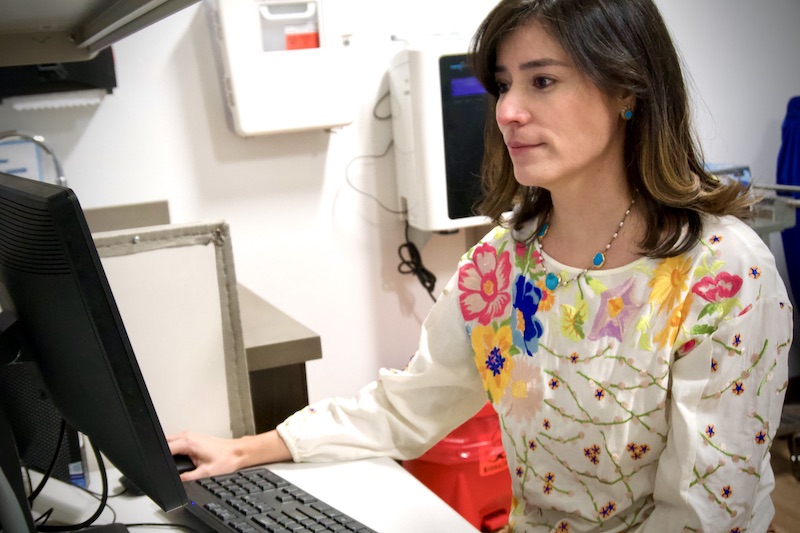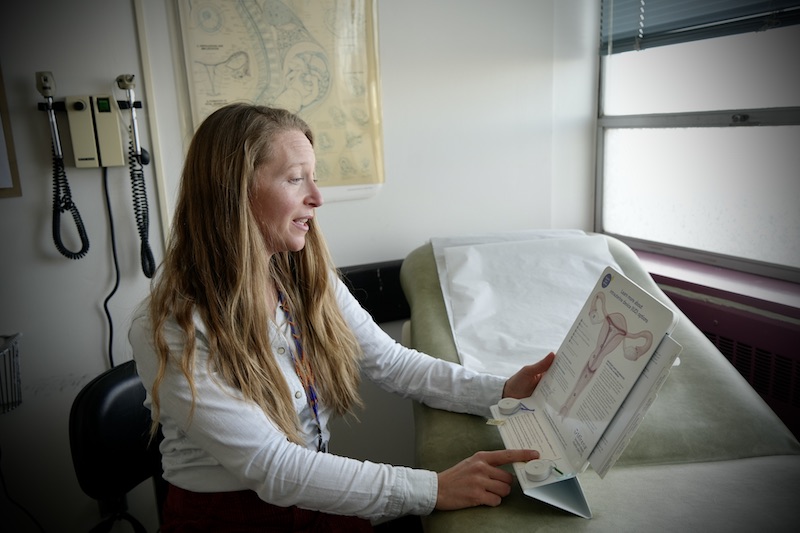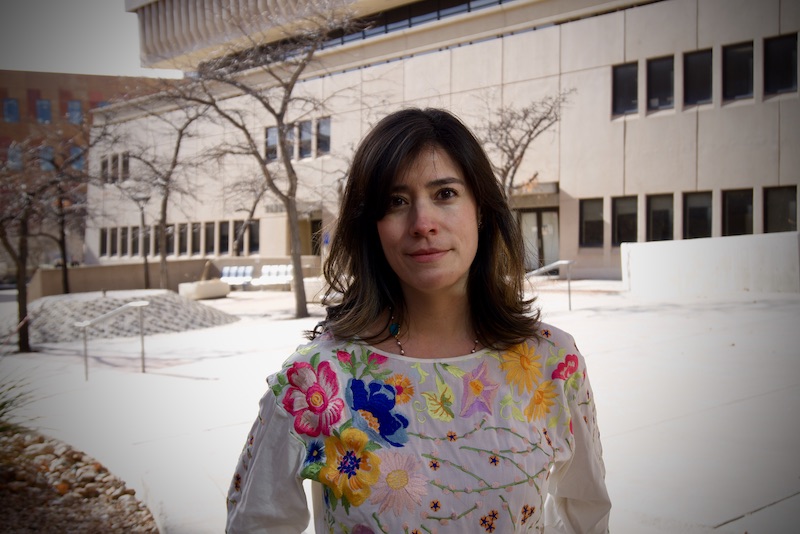Since 2021, Dr. Francheska Gurule and Dr. Erin Lorencz have worked together to provide better maternal health care to women, and their babies, in New Mexico – and they live 140 miles apart.
As part of the Improving Perinatal Health Team with Project ECHO, their focus is making “wraparound care”—plans that incorporate medical treatment with prenatal and post-natal care, including social services—a reality for pregnant people with substance use disorders, which account for nearly half of maternal deaths in New Mexico. Beginning in April, this year’s 10-part ECHO program has more than 500 participants.

The IPH ECHO Program enables Dr. Gurule, pictured here in a patient room, to evaluate patient records over time. Credit: Project ECHO
In the 2022-2023 Improving Perinatal Health ECHO program, 327 providers participated, exceeding the number of registered OB-GYNs in New Mexico by 20%. The program helped nurse practitioners, nurse-midwives, and other types of clinicians improve their maternal-health skills. With an equal average number of sessions attended in rural and urban counties, the program effectively reached providers all over the state.
The programs covers a wide range of complex topics to increase provider comfort and confidence caring for these patients. Sessions have included topics many providers do not have time to access during their initial medical training: pharmacology of medication for opioid use disorder (MOUD), addiction recovery in postpartum care, how breastfeeding interacts with substance use disorder, and pain management for pregnant people with an opioid use disorder diagnosis.
Reframing Substance Use Disorder and Pregnancy
The medical community has, at times, misunderstood how substance use disorder develops and coincides with pregnancy. “Substance use is very much a medical problem,” Dr. Lorencz explains. “As you can imagine, women—and women who become pregnant—are not spared by the fentanyl epidemic, or by anything else.”

In one of her patient rooms at the Gallup Indian Medical Center, Dr. Lorencz demonstrates a tool she uses to discuss pregnancy risk and recovery to her perinatal health patients. Credit: Project ECHO
Because people are more likely to be interacting with the health system while pregnant, it is a key time to reach women who need treatment for substance use. And the benefits are multiplied: they receive treatment for substance use; they have improved birth outcomes; they have more support for a healthier baby; and they have a chance at long-term recovery.
“People say to me, ‘I’m so glad to have my daughter back, or I’m so glad to have my sister back,’” Dr. Gurule shares. “Expanding access to substance use disorder treatment makes a difference for our state.”
Dr. Gurule, who grew up in Las Vegas and is now based in Albuquerque, and Dr. Lorencz, based at the Gallup Indian Medical Center, understand how essential ECHO is to providing care across a state as rural as New Mexico. “We have a lot of folks with two-to-three-hour drives to get care from our urban centers, so we need more providers equipped for this work. ECHO is a solution for our rural care providers,” Dr. Gurule says.

Dr. Gurule stands in front of the Family and Community Medicine Building at The University of New Mexico campus, where she sees patients and joins ECHO sessions. Credit: Project ECHO
Addressing Systemic Barriers
To truly make a difference in reducing New Mexico’s high maternal mortality rates related to substance use disorder complications, it requires more than medical treatment, adds Dr. Lorencz. Whether in Gallup or Albuquerque, maternal health care patients often have to grapple with significant barriers, such as: inadequate funds for transportation, insecure housing, or a lack of knowledge on what resources could be available.
“In this year’s upcoming ECHO curriculum, our sessions are laser-focused on the exact gaps providers still experience, whether it’s funding, transportation for patients, or case studies with social work complications. We know the gap still exists, and that’s what we are working hard to change with ECHO,” Dr. Lorencz says.
Health care providers in New Mexico can participate in the free Improving Perinatal Health Outcomes ECHO program. Register at iECHO.org, Project ECHO’s custom-built software platform.

